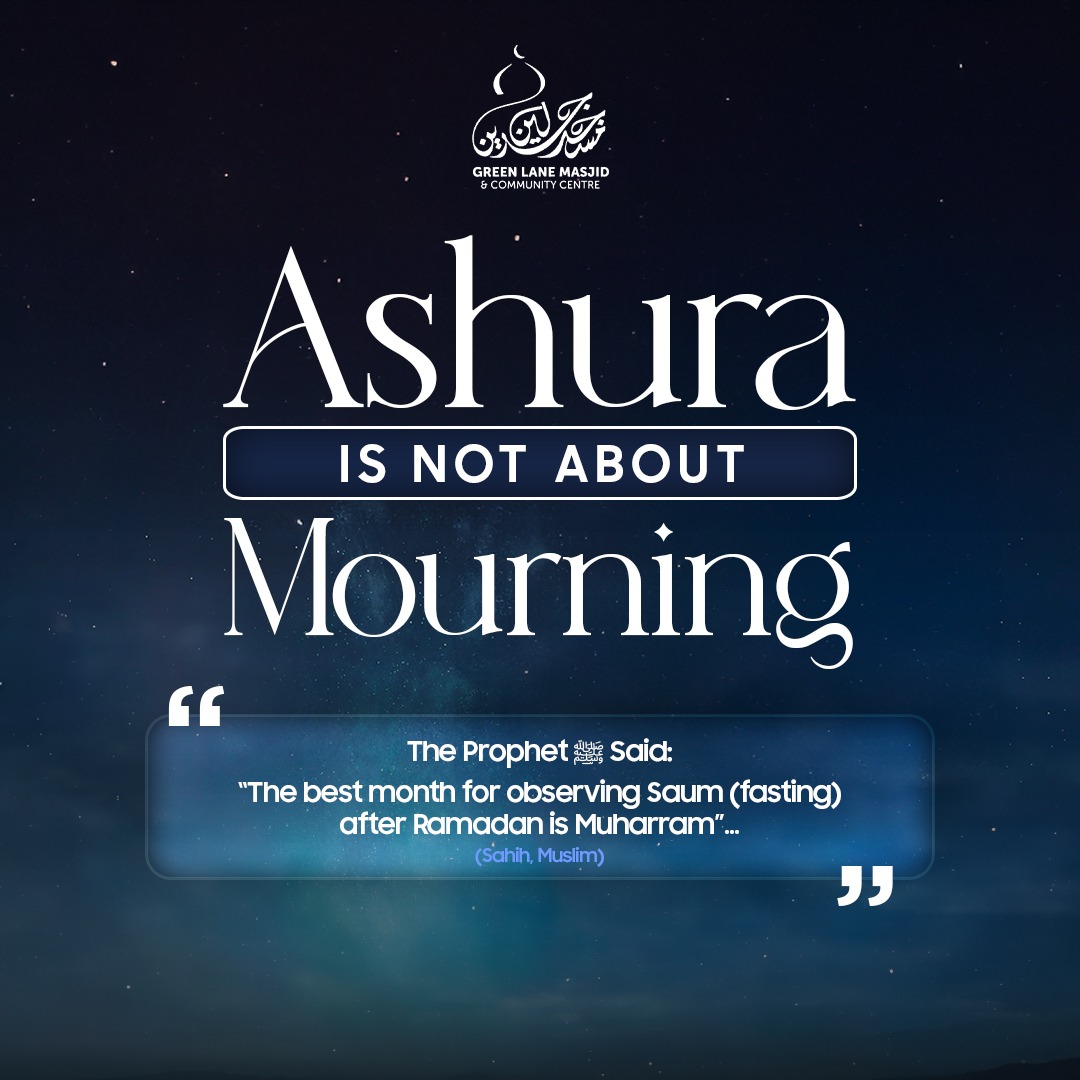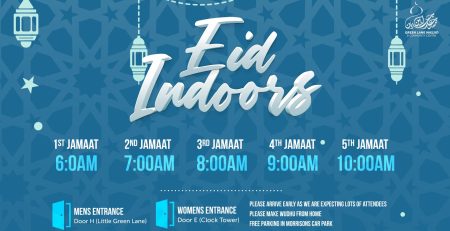Ashura is Not About Mourning
Today is Ashura, a day marked by a great historic event for all believers—a day when truth overcame falsehood. It is the day when the evil Pharaoh was destroyed, and Prophet Musa (عليه السلام) and his people were saved. The sea split in miraculous ways, parting and each part was like a great towering mountain, creating a path of safety for Prophet Musa and drowning Pharaoh. Allah says, “فَانْفَلَقَ فَكَانَ كُلُّ فِرْقٍ كَالطَّوْدِ الْعَظِيمِ” (Ash-Shu’ara 26:63), “Then it parted, and each part was like a great towering mountain.”
Our beloved Prophet Muhammad (ﷺ) encouraged us to fast on this day and express gratitude. When he found out that the Jews in Medina would fast, he said, “We are more deserving of Musa than they,” so he fasted and ordered his followers to fast that day as well (Sahih Bukhari). The reward for fasting on the day of Ashura is significant:
The Prophet (ﷺ) said, “Fasting the day of Ashura, I hope that Allah will accept it as expiation for the year that went before” (Sahih Muslim).
However, Ashura also happens to be the day a very tragic event occurred—the unjust killing and massacre of the great companion and grandson of Rasulullah (ﷺ), Husain ibn Ali (RA).
The Massacre at Karbala
Husain ibn Ali (RA), the grandson of the Prophet (ﷺ), was unjustly killed on the 10th of Muharram, in the year 61 AH. Husain (RA), upon receiving calls for support from the people of Kufa, decided to travel there, accompanied by many of his family members. Despite being warned by several companions of the Prophet (ﷺ), he proceeded, believing in the righteousness of his cause. As he approached Kufa, Ubaidullah ibn Ziyad, the governor, sent armed forces to confront him. Husain (RA) refused to be taken prisoner and requested to return. This eventually led to a confrontation where he and many of his family members were tragically killed in Karbala.
Husain (RA) was honoured by Allah, he was granted shahadah and he is in Jannah, as the Prophet (ﷺ) said: “Hasan and Husain are the leaders of the youth of Paradise” (Jami` at-Tirmidhi).
The Aftermath and Innovation
It is very natural to feel sadness at this tragedy and the heinous crime that was committed. However, due to this, an innovation arose, which is repeated every year, where some—The Shia—express their grief in ways not allowed in the Sunnah. The Shia practice of egregious self-harm on Ashura, such as beating themselves and making themselves bleed, is not condoned by the Sunnah; rather, it is condemned. The Prophet (ﷺ) prohibited extreme behaviours in grief, like wailing and tearing clothes:
“He is not from us who slaps the cheeks, tears the clothes and calls with the call of Jahiliyyah” (Sahih Bukhari).
The Prophet (ﷺ) also said: “Do not wail over the dead” (Sahih Muslim).
It is important to understand that the Sunnah does not legislate specific anniversaries for mourning the death of even the greatest people. For example, Ali (RA), Husain’s father, Hasan (RA), his older brother, Uthman (RA), and Umar (RA) were also killed unjustly, yet there are no special days to mourn their deaths. Even great messengers and prophets were unjustly killed, and no special days were legislated to mourn them.
As Muslims, we should understand that Ashura is not about Husain (RA). While the tragedy of Karbala deeply saddens us, Ashura primarily commemorates the victory of Prophet Musa (عليه السلام) and the act of fasting in gratitude. The practices of extreme mourning, wailing, and self-harm are not part of the Sunnah and should be avoided. Instead, Muslims should observe Ashura with fasting, gratitude, and reflection, following the Sunnah of the Prophet Muhammad (ﷺ).










